Happy DNA Day everyone. On this date in 1953, Nature published four articles on the structure of DNA, including the 800-word, data-free masterpiece by Watson and Crick—but also the work of Rosalind Franklin, Raymond Gosling, and Maurice Wilkins that did actually have data, and without which the first Watson and Crick paper would have been handwaving fluff. The Watson-Crick paper is a rightful classic of the scientific literature, but it’s too easy to forget those who provided the evidence to back them up.
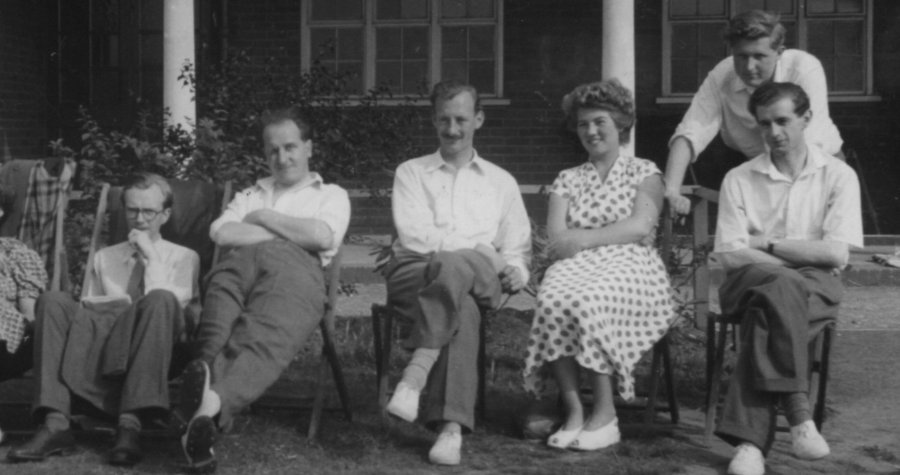
To celebrate, the genetic testing company 23andMe posted a DNA Day infographic that is a marvelous inadvertent evidence of genetic oversell. That’s the best kind, because it unself-consciously undermines its own claims.

These claims are about health. Last year, the company was ordered to stop marketing their genomic testing service as a health service and it agreed to stop selling it altogether. It would henceforth focus on the genealogy side of their service. They are evidently sneaking back in, though, with ads—sorry, “infographics”; so much more documentary-like than “advertisements”— like this one.
Ninety-one percent of Americans, it trumpets in giant type at the top of the ad, “correctly believe that knowing their genetic information can be helpful in managing their health.” On one level, Well, duh. Everyone knows that some diseases run in families: you don’t have to have a high level of genetic literacy to be aware that knowing whether your mother, grandmother, great-grandmother, and aunts have had breast cancer is a pretty useful little medical tidbit. The statement is worded so vaguely as to be meaningless. The remaining nine percent probably have some strongly hereditary learning disability that keeps them from correctly knowing how to feed themselves.
On a second level, though, I’d like to know what percentage of Americans incorrectly believe that knowing their genetic information can be helpful in managing their health. What percentage, for example, think that having one of the BRCA risk-factor alleles means they are going to get breast cancer unless they have a mastectomy? What percentage believe that a 300% increase in risk for an extremely rare disease—from one in 3 million, say, to one in a million—is cause for alarm? What percentage think that the association of a single nucleotide polymorphism with a genetic disease means that biomedicine has the cause—let alone a cure—for that disease? What percentage of Americans, in short, have no understanding of probability, pleiotropy, penetrance, or gene–environment interaction, and yet read ads from companies such as 23andMe and think, “Yee-haw! I can learn what diseases I’m going to get, and which ones not, just by spitting in a cup!”

The infomercial continues downward, with more statistics: smaller numbers in smaller type. Thirty-one percent know that genetic testing can “show their body’s ability” to metabolize caffeine, etc. At the bottom, though, the numbers get large again. “People still need a refresher on the basics of genetics,” they say. Forty-nine percent of women “believe their sex chromosome is XY.” Their sex chromosome is XY? What percentage of genetic testing companies employ staffers who can write simply and accurately about genetics? Another statistic: forty-one percent don’t realize DNA is organized into chromosomes.
Finally, in tiny print at the very bottom, they tell us that the survey was conducted on 1000 “nationally representative Americans” by an “independent research firm, Kelton.” Kelton Global is a marketing firm that specializes in repositioning companies that have lost market share or want to break into new markets. Their motto is “helping brands navigate change.” They take surveys, track metrics, re-brand companies, and so forth. Their niche is using numbers to persuade and making statistics say what their clients want them to say.
Let’s make a few postulates for the sake of argument. Let’s say that this is a real sample, designed seriously by people who understand statistics. Let’s say the questions were worded better than this and that those questioned understood what they were being asked. Let’s assume the ad was just badly written. It may be that these are totally unjustified, but we’ll give them the benefit of the doubt for just a moment.
If their numbers are in fact meaningful, what they show is that people are buying the hype about genetic testing without understanding it. How happy should we be that people who don’t know what a chromosome is nevertheless believe that genetic testing can tell them about their health? We’re not talking about informed decision making about subtle and complex data; we’re talking drinking the Kool-Aid. What this ad says, most of all, is that even though officially 23andMe is out of the health-claim game, they are still very interested.
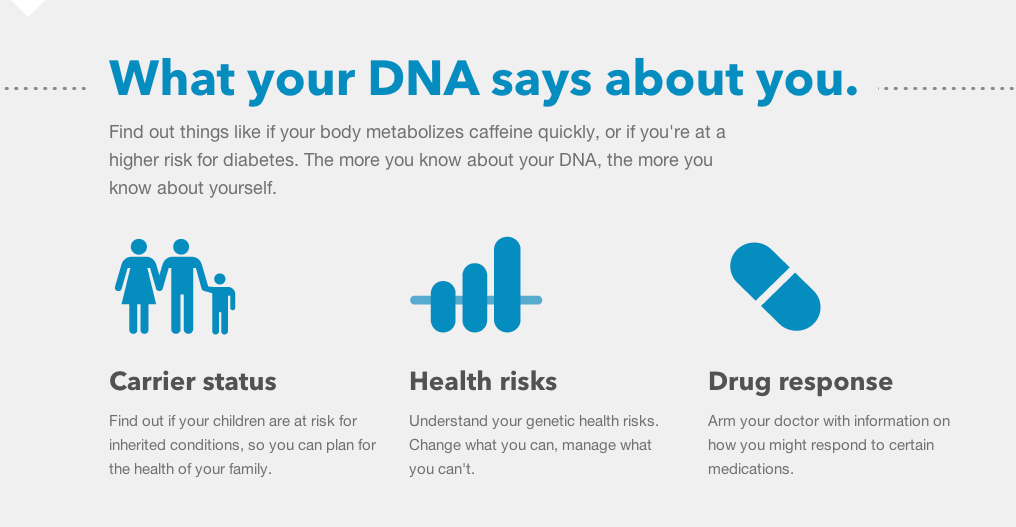
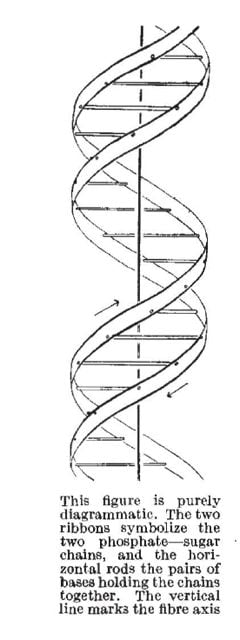
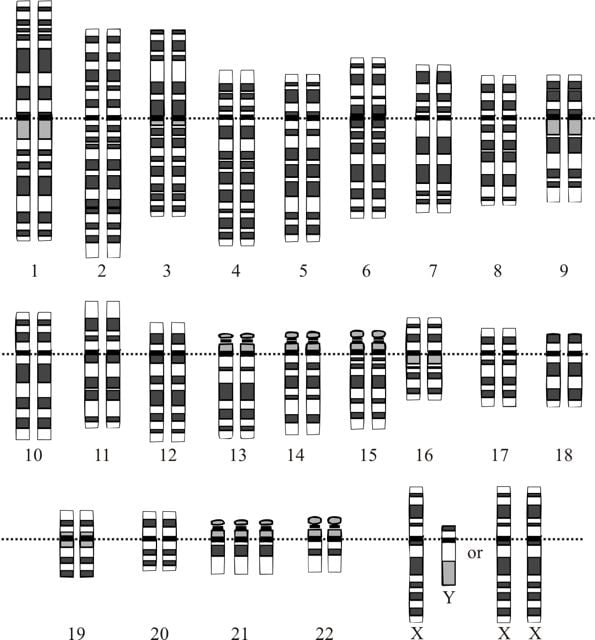

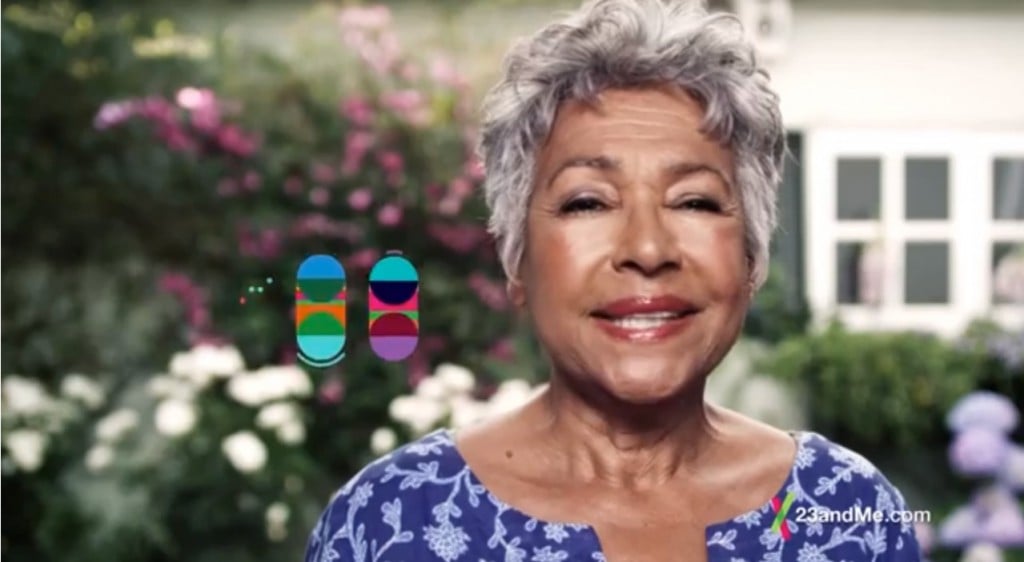
You must be logged in to post a comment.